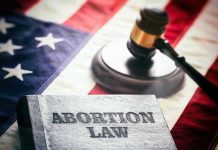
Olivia Nuzzi’s memoir alleges RFK Jr.’s psychedelic use, raising questions about personal influence on public policy.
Story Highlights
- RFK Jr. accused of using powerful psychedelics in new memoir.
- Nuzzi claims substances induce “near-death” experiences.
- Allegations intersect with RFK Jr.’s advocacy for psychedelic therapies.
- Public and political reactions are mixed and intense.
Allegations Stir Controversy
In a recently published memoir, journalist Olivia Nuzzi accuses Robert F. Kennedy Jr., the current Secretary of Health and Human Services, of using a powerful psychedelic. This substance, known for inducing “near-death” experiences, allegedly raises concerns about the influence of personal experiences on his support for psychedelic therapies.
The memoir highlights personal interactions and communications with Kennedy, shedding light on his private behavior amidst his public advocacy.
RFK Jr., a long-time advocate for psychedelic therapy, has pushed for legalizing these substances, citing personal and familial experiences with mental health issues. The memoir’s allegations come at a critical time, as the Department of Health and Human Services is exploring pathways to potential legalization within the next year.
The claims have sparked immediate reactions, with critics questioning the ethics and implications of personal substance use influencing public policy.
Policy Implications and Public Reactions
As Secretary of Health and Human Services, RFK Jr. holds significant sway in shaping federal health policy. His public support for psychedelic therapies has garnered attention, particularly in light of the recent memoir.
The U.S. is currently at a pivotal point regarding psychedelic policy, caught between burgeoning advocacy for mental health applications and the need for regulatory caution.
Veterans and individuals with treatment-resistant mental health conditions could potentially benefit from expanded access to psychedelic therapies. However, the controversy over RFK Jr.’s alleged use raises questions about the balance between innovation and safety.
Critics argue that personal conduct and policy-making should remain distinct, while supporters see potential for transformative mental health treatments.
Future of Psychedelic Research
The debate surrounding RFK Jr.’s alleged psychedelic use highlights broader discussions about the future of psychedelic research and therapy. Industry experts express optimism about the potential benefits but caution against bypassing rigorous scientific evaluation.
The administration’s rapid movement towards legalization has sparked hope among advocates but also raises concerns about the influence of personal experiences on policy decisions.
As the controversy unfolds, the implications for psychedelic research and regulation remain significant. The intersection of personal conduct and public policy continues to be a focal point for both supporters and critics, with potential ramifications for the future of mental health treatment in the U.S.















